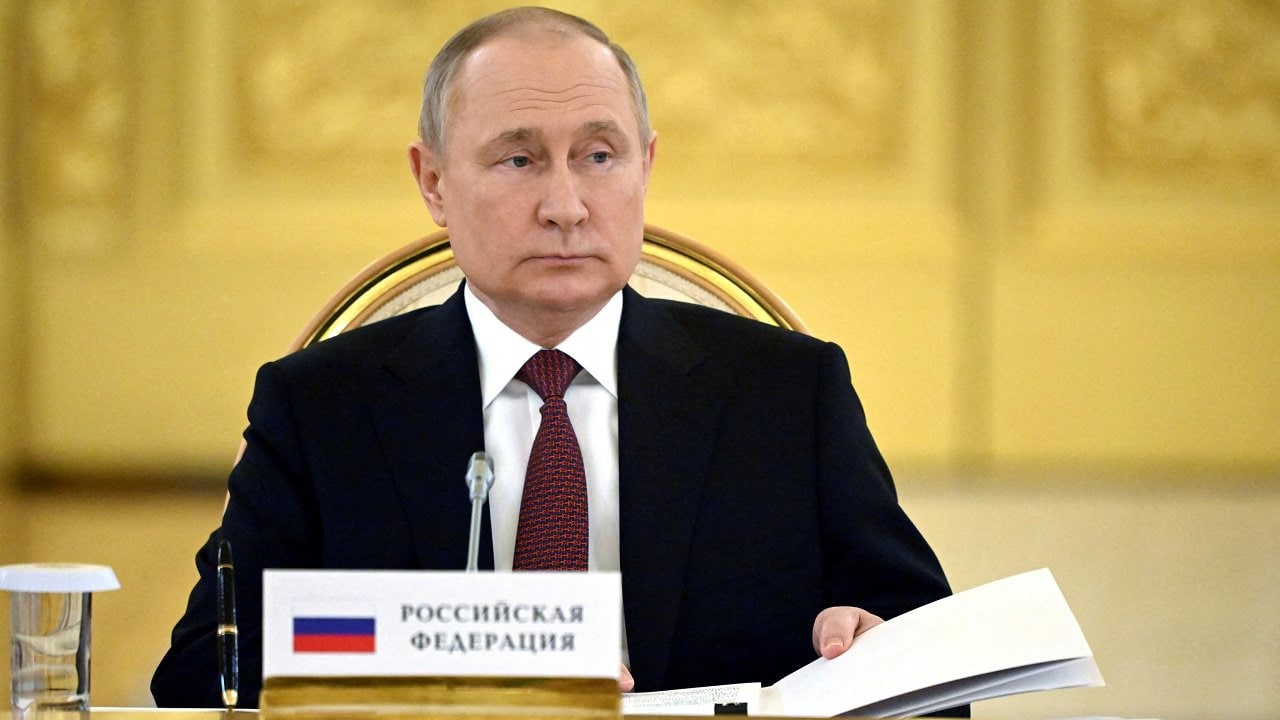Russia is a failing state.
That’s the key takeaway from the ongoing crisis surrounding would-be strongman, Yevgeny Prigozhin, the tough-talking chief of the Wagner private military company.
Prigozhin’s coup may or may not succeed. While his victory would spell the end of the Putin regime, the very fact of a systemic crisis is what ultimately matters more.
Stable regimes don’t face such challenges. Unstable regimes beset by deep-seated contradictions between elites, rulers, and subjects do.
Vladimir Putin is far weaker than his propagandists in both Russia and the West would have us believe.
And how could he not be the target of withering scorn and derision?
He’s driven Russia off a cliff and has no idea of how to bring about a soft landing. Given the disastrous shape of his army, economy, and realm, it would be a downright miracle for no opposition to his self-destructive misrule to have emerged. Ironically, Putin called Prigozhin’s actions “a stab in the back of the country and the people.”
What Russia’s unhinged leader forgot to add was that the war he initiated was a stab in the front of the country and the people.
Prigozhin had a point when he responded to Putin’s accusations by saying, “The president is wrong about the betrayal of Motherland. We are the patriots of our homeland; we fought before and we are fighting now. All the fighters of the Wagner private military company. And no one is going to surrender at the request of the president, the FSB or anyone else. We do not want the country to continue to live in corruption, deception and bureaucracy….”
Prigozhin, in that sense, is a symptom of and response to Putin Russia’s weakness and rapidly approaching failure as a state. The United States and its allies would do well to appreciate that they may be witnessing the beginning of the end of Putin, his regime, and the Russian Federation. A bit of preparation for all three scenarios might be a good idea. Western policymakers should remember that they cannot influence outcomes; they can only react responsibly.
The Prigozhin affair will obviously do Russia’s military no good. An army that is divided against itself, and that has to be as concerned with internal threats as external ones, is doomed to failure, especially now as the Ukrainians are planning to ramp up their offensive. Expect Kyiv to take advantage of the chaos in Russia’s ranks.
Russia today increasingly resembles Russia in 1917, a comparison that even Putin made in his address. An unwinnable war, a collapsing economy, a demoralized population, a fragmented elite, an incompetent leader, and an ineffective and demoralized army led to regime collapse and revolution then, and are very likely to lead to similar outcomes today.
With a little luck and a lot of muscle, Prigozhin may just go down in history as the crime boss who brought down the capo di tutti capi, destroyed his criminal empire, and inadvertently did the world a huge favor.
Dr. Alexander Motyl is a professor of political science at Rutgers-Newark. A specialist on Ukraine, Russia, and the USSR, and on nationalism, revolutions, empires, and theory, he is the author of 10 books of nonfiction, including Pidsumky imperii (2009); Puti imperii (2004); Imperial Ends: The Decay, Collapse, and Revival of Empires (2001); Revolutions, Nations, Empires: Conceptual Limits and Theoretical Possibilities (1999); Dilemmas of Independence: Ukraine after Totalitarianism (1993); and The Turn to the Right: The Ideological Origins and Development of Ukrainian Nationalism, 1919–1929 (1980); the editor of 15 volumes, including The Encyclopedia of Nationalism (2000) and The Holodomor Reader (2012); and a contributor of dozens of articles to academic and policy journals, newspaper op-ed pages, and magazines. He also has a weekly blog, “Ukraine’s Orange Blues.”
From 19FortyFive
Footage Shows World War I Guns Being Used in Ukraine
‘Vacuum Bombs Destroyed’: Ukraine Footage Shows Putin’s Thermobaric Rockets Destroyed
BOOM! Ukraine Video Shows Precision Strike on Russian Air-Defense System

